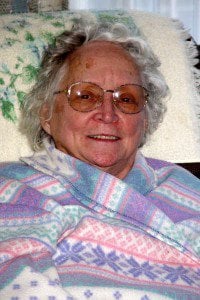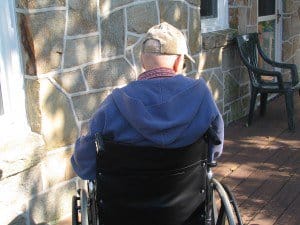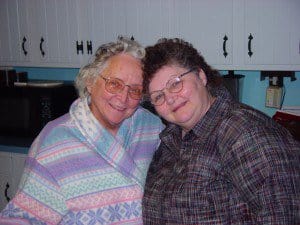 When a senior citizen develops a chronic condition, they often require much more care than usual. This is because in addition to the chronic condition, they are also affected by various age-related issues such as diminished eyesight, arthritis, difficulty bending or standing, and other problems. Three of the most common chronic conditions seniors face are Alzheimer’s, diabetes, and cancer. There are different things caregivers need to know about each of these diseases.
When a senior citizen develops a chronic condition, they often require much more care than usual. This is because in addition to the chronic condition, they are also affected by various age-related issues such as diminished eyesight, arthritis, difficulty bending or standing, and other problems. Three of the most common chronic conditions seniors face are Alzheimer’s, diabetes, and cancer. There are different things caregivers need to know about each of these diseases.
Alzheimer’s
Alzheimer’s is a brain disease that affects millions of people in the U.S. This disease is progressive, and at this time, no cure exists. Almost half of all senior citizens who are over 85 have Alzheimer’s. Symptoms often appear around age 75, and the disease can last anywhere from between eight and 12 years. The main symptoms include loss of memory, disorientation, and inability to do day-to-day basic tasks. Those with late-stage Alzheimer’s often require around the clock care.
Caring for seniors with Alzheimer’s can be difficult in a number of ways. The hardest part comes when the disease progresses to the point that the person no longer recognizes friends and family members. Children often have to remind their parents who they are. Their lack of memory may cause them to wake up not knowing where they are or who is with them, and this can lead to panic.
Those who are providing Alzheimer’s and dementia care for someone afflicted by these conditions need to remember that they have to have a great amount of patience with their loved one. It’s important to learn how to calm the person and how to deal with their bad days. Watching a loved one deteriorate from Alzheimer’s is one of the most difficult things a person will ever do, and many people benefit greatly from talking to a therapist about the ordeal and by ever-continuing their education on Alzheimer’s caregiver tips and advice.
Diabetes
Diabetes affects millions of people, not just the elderly, but those who are older do often have a more difficult time with it. Diabetes causes the body to become insulin resistant or to stop producing insulin entirely. Those providing diabetic senior care need to know the different warning signs and how to deal with them.
Knowing when a person has high or low blood sugar is vital. People who have high blood sugar can become confused. They may be extremely hungry or thirsty, may need to urinate frequently, and may have difficulty walking or seeing. Those with low blood sugar have to deal with dizziness, rapid heartbeat, sweating and shaking, and weakness. Both are very serious conditions that can, if left untreated, result in a diabetic coma and death.
Diabetes caregiver education is important as those with diabetes have to stick to a very strict diet. One of the most difficult things a caregiver may face is keeping the elderly person on this diet. They may want to cheat frequently, and they may want to avoid exercising or taking their medication, especially if they require shots. One thing a caregiver can do is show solidarity—eat the same type of diet (at least when eating with the person) and exercising with them. Diabetes can lead to depression, so it helps to show that while it requires some sacrifice and life changes, it’s not the end of the world.
Caregivers should make certain their loved one understands the disease and what they need to do to keep it under control. They may want to take the person to a diabetes support group or help them work with a nutritionist to create a better diet.
Cancer
Providing cancer senior care can be emotionally draining because, in ad vanced stages, it means the end of life. It’s also harder for the elderly to go through treatment because chemotherapy and other forms of treatment take a toll on the body that older people may not be able to recover from. Those who have an elderly loved one and a history of cancer need to make certain that both get screened for cancer on a regular basis. Early detection, especially in elderly patients, is key.
vanced stages, it means the end of life. It’s also harder for the elderly to go through treatment because chemotherapy and other forms of treatment take a toll on the body that older people may not be able to recover from. Those who have an elderly loved one and a history of cancer need to make certain that both get screened for cancer on a regular basis. Early detection, especially in elderly patients, is key.
In addition to being at risk for common cancers like breast cancer, throat cancer, skin cancer, and other types, there are some rare types of cancer that affect seniors more than any other age group. This includes pleural mesothelioma, a type of cancer that typically lies dormant for 20 to 50 years. Unfortunately, because its symptoms mirror those of many other issues seniors often face, it’s usually not diagnosed until it has already spread.
What can you do to help those with cancer? Those undergoing chemotherapy may lose the feeling in their hands due to neuropathy, so it’s important to make certain they don’t accidentally cut themselves or touch things that are extremely hot or cold because they may not realize it. Those who are entering hospice often simply need someone to spend time with. Do what you can to make what time they have left as comfortable as possible and, while it may be difficult, also try to keep things upbeat and fun. Those who have cancer often sink into depression, which can hasten the end of their life.
Show Your Love
While it can be difficult to care for an elderly p erson who is suffering from Alzheimer’s, diabetes, or cancer, it’s important to show them how much you love them. Whether they’re in the early stages and have years left or are facing the end of their lives, senior citizens need the support and love of their friends and family. Learning how to help them with their disease is one way of showing this love.
erson who is suffering from Alzheimer’s, diabetes, or cancer, it’s important to show them how much you love them. Whether they’re in the early stages and have years left or are facing the end of their lives, senior citizens need the support and love of their friends and family. Learning how to help them with their disease is one way of showing this love.


